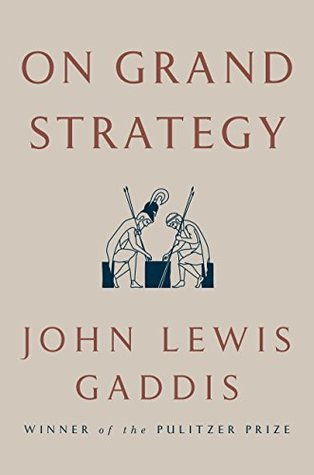More on this book
Community
Kindle Notes & Highlights
Pfuel was one of those theorists who so love their theory that they forget the purpose of the theory—its application in practice; in his love for theory, he hated everything practical and did not want to know about it. He was even glad of failure, because failure, proceeding from departures from theory in practice, only proved to him the correctness of his theory.
He places theory within the category of rules to which there can be exceptions, not laws that allow none. He values theory as an antidote to anecdotes: as a compression of the past transmitting experience, while making minimal claims about the future. He relies on theory for training, not as a navigational chart for the unforeseen.
That’s why war—explicitly in Clausewitz, implicitly in Tolstoy—must reflect policy. For when policy reflects war, it’s because some high-level hedgehog—a Xerxes, or a Napoleon—has fallen in love with war, making it an end in itself. They’ll stop only when they’ve bled themselves bloodless.
Overstretch—the enfeeblement that comes with confusing ends and means—allows enemies to apply leverage: small maneuvers that have big consequences.
More than any other American before Lincoln, therefore, it was Adams who placed the Constitution within the frame of the Declaration—all men were created equal—where he knew that the Constitution, as it then stood, couldn’t comfortably sit.
Both shared, though, this central point: that “liberty is power,” and that “the nation blessed with the largest portion of liberty must in proportion to its numbers be the most powerful nation upon earth.”87
Eurasian continental consolidations. One of FDR’s first actions as president was to upgrade the United States Navy—but as a job-creating public works project, he thought it prudent to claim.87
For Roosevelt also doubted his country’s willingness again to make overseas commitments. That, he knew, had been Wilson’s unintended legacy: an overhang of American incapacity under which the weakened European democracies would, for the foreseeable future, be on their own.
as Schlesinger writes to his parents a few days later: “[T]he kind of world I have been preparing to live in is gone.”
“We were the war generation and then some called us the lost generation and then we were the depression generation and now we regress to our first estate.”
For Berlin, it upended the moral equivalence with which he’d previously viewed the coming Cold War: two great powers doing what great powers had always done. America and Russia differed, he could now see, not just in geographies, histories, cultures, and capabilities, but also, critically, in necessary ecologies. One thrived on cacophony. The other demanded silence.
But Marxists claimed “to know in advance whether a man’s views are correct . . . simply by finding out his social or economic background or condition.” They assumed “the irrefutability of [their] own theory.”28
Rationalists had long seen contradictions as carrying within themselves seeds of their own resolution. Conservatives found these in the flow of time, which diminished old controversies by embedding them in new circumstances:
Berlin called the first “positive liberty,” but not as a compliment: that liberty, if carried to extremes, led to tyranny—removing contradictions by silencing them. The second, “negative liberty,” cultivated contradictions, even cacophonies: without a compass, though, it could produce drift, parochialism, and ultimately anarchy.
Unable to resist commenting on Kennedy’s claims, Bemis began mildly but concluded memorably: “You wouldn’t want to give it all back, would you?” Well, no, if we’re really honest with ourselves, most of us wouldn’t, even in this more politically correct age.
Proportionality comes from what grand strategy is: the alignment of potentially infinite aspirations with necessarily limited capabilities.


